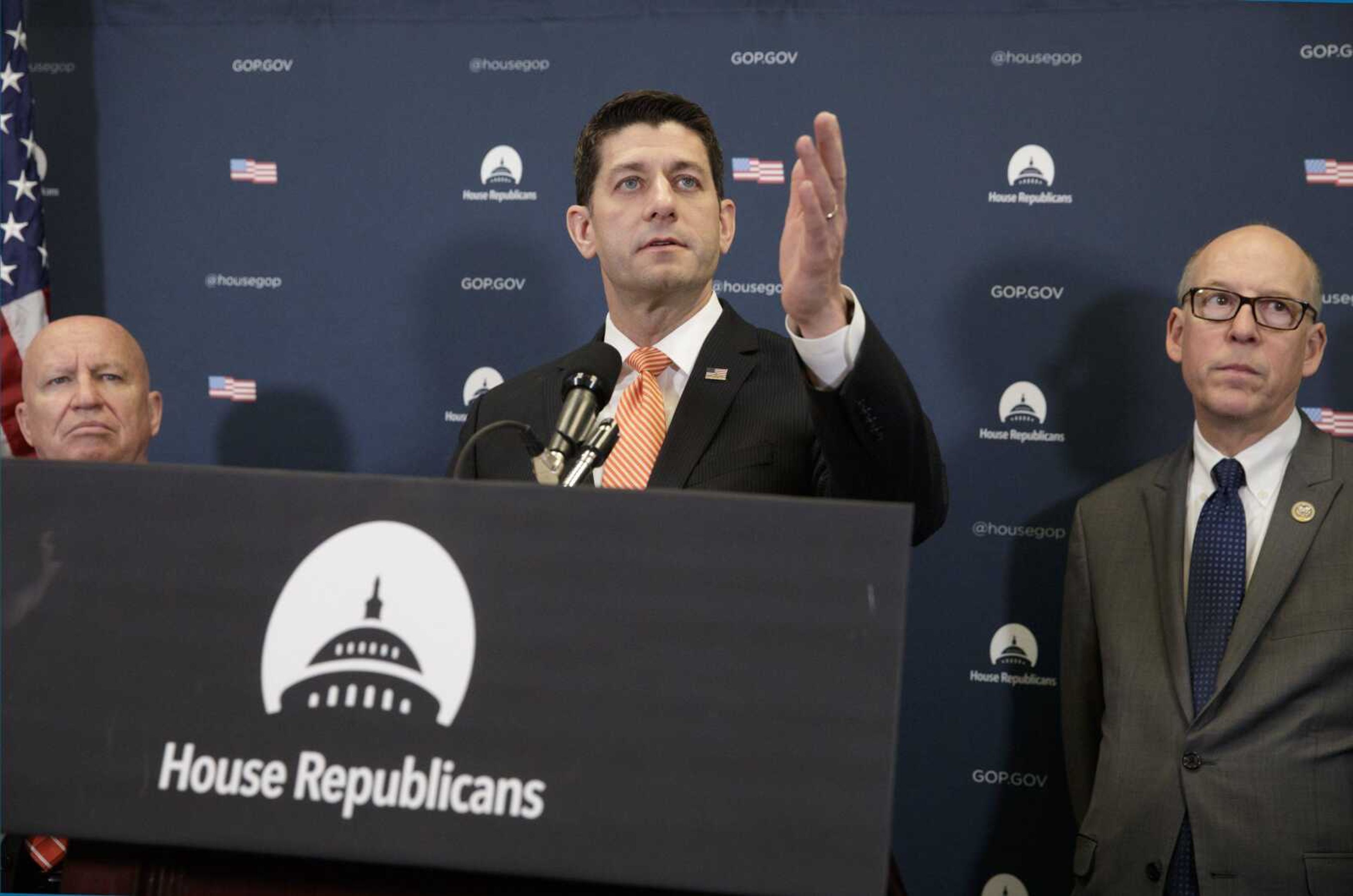After Flynn resigns, Dems ask what did Trump know and when
WASHINGTON -- The resignation of National Security Adviser Michael Flynn elicited a simple but persistent question Tuesday from congressional Democrats: What did President Donald Trump know and when did he know it? But many Republicans brushed past this echo of Watergate and another Republican president, Richard Nixon, to maintain no special investigation was warranted and the existing Republican-led committees will handle the probe, mostly in private...
WASHINGTON -- The resignation of National Security Adviser Michael Flynn elicited a simple but persistent question Tuesday from congressional Democrats: What did President Donald Trump know and when did he know it?
But many Republicans brushed past this echo of Watergate and another Republican president, Richard Nixon, to maintain no special investigation was warranted and the existing Republican-led committees will handle the probe, mostly in private.
After Flynn stepped down late Monday following reports he misled Vice President Mike Pence about contacts with a Russian diplomat, Democrats demanded the formation of an independent, bipartisan panel to examine possible links between the Trump administration and Russia, including when the president learned Flynn had discussed U.S. sanctions with a Russian diplomat.
This latest push builds on an earlier call by Democrats for an independent inquiry into Moscow's meddling in the 2016 election to help Trump beat Democrat Hillary Clinton.
"The American people deserve to know the full extent of Russia's financial, personal and political grip on President Trump and what that means for our national security," House Democratic Leader Nancy Pelosi said.
At issue is whether Flynn broke diplomatic protocol and potentially the law by discussing U.S. sanctions with Russia's ambassador to the U.S., Sergey Kislyak, before Trump's inauguration.
The sanctions were imposed in December by President Barack Obama after U.S. intelligence reported Russia had interfered in the presidential election.
"Who knew about this and when? Did the president know and when did he know it? Did others at Trump transition team authorize conversations about sanctions?" asked Rep. Steny Hoyer, D-Md., the No. 2 House Democrat. "After the White House was informed, who made the decision to allow Flynn to continue to serve despite the fact he misled the administration?"
Sen. Claire McCaskill of Missouri, the top Democrat on the Homeland Security and Governmental Affairs Committee, said the Trump administration ought to want a "public airing" of Flynn's actions and the Russian government's attempts to influence the American political system.
"The questions are so numerous, and it's really hard to get past them and begin to look infrastructure or tax reform or even confirming a Supreme Court nominee," McCaskill said.
House Speaker Paul Ryan said Flynn made the right decision to step down. But Ryan sidestepped questions about whether an inquiry is warranted.
"I'm not going to prejudge any of the circumstances surrounding this until we have all of the information," the Wisconsin Republican said.
Rep. Jason Chaffetz of Utah, the Republican chairman of the Oversight and Government Reform Committee, said "the situation has taken care of itself" when asked whether his panel would investigate Flynn's actions.
"Sounds like he did the right thing; he didn't want to be a distraction," Chaffetz said of Flynn. "And it was getting to be a distraction."
Rep. Devin Nunes, R-Calif., chairman of the House Intelligence committee, said he intended to ask the FBI how details from Flynn's conversation with Kislyak were disclosed to reporters.
"I'm just shocked that nobody's covering the real crime here," Nunes said. "You have an American citizen who had his phone call recorded and then leaked to the media."
Sen. Richard Burr, R-N.C., the Senate Intelligence Committee chairman, said his panel will "continue to do aggressive oversight" behind closed doors. "We don't do that in public," he said.
But Sen. Bob Corker of Tennessee, the Republican chairman of Foreign Relations Committee, said Congress needs to do "whatever it takes" to resolve questions about "Russia's relationship" to the 2016 presidential election.
"This is going to go on forever if we don't address it," Corker said.
Sen. Lindsey Graham, R-S.C., said he wants to know whether Flynn initiated the conversations with Kislyak or whether he was directed to make contact with the ambassador.
Connect with the Southeast Missourian Newsroom:
For corrections to this story or other insights for the editor, click here. To submit a letter to the editor, click here. To learn about the Southeast Missourian’s AI Policy, click here.










